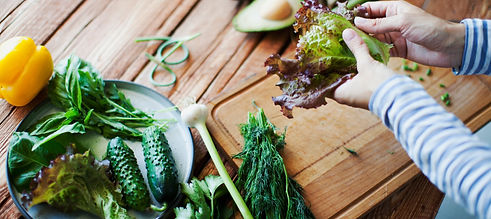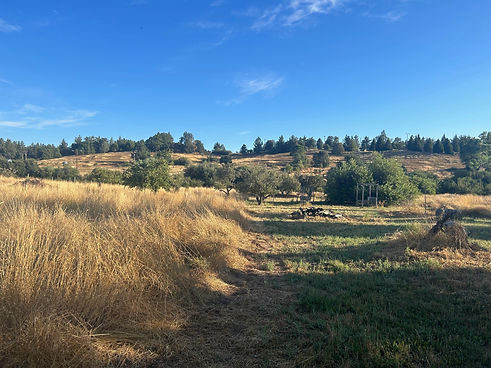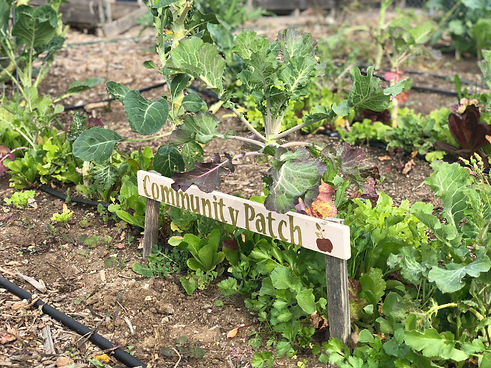Team-Taught Interdisciplinary Classes
Our team has previously offered courses that are listed below, reflecting the evolving nature of our curriculum. New classes are introduced each semester
CAL 400: Binational Approaches to Sustainable Food Systems
Spring 2024, Thursdays 4 to 6:40pm, AH 2112
Our contemporary industrial and global food system faces serious sustainability challenges: it not only struggles to ensure consistent food access but also contributes to significant environmental and societal pressures. This course explores these issues in the context of the U.S.–Mexico border and investigates how farmers, retailers, consumers, grassroots organizations, and other local participants are using place-based knowledge and resources to address these problems and work toward more sustainable food systems.
You will learn from a team of professors (Lluvia Flores Renteria, Pascale Joassart-Marcelli, John Love, Changqi Liu, Ramona Perez, and Steve Welter) who together bring an interdisciplinary and systemic perspective to food security and sustainability, which integrates humanities and social, nutritional, and natural sciences.
Open to undergraduate and graduate students. May count towards degrees in anthropology, biology, environmental studies, food and nutrition, food studies, geography, sustainability (check with your advisor)
Prof. Pascale Joassart-Marcelli: pmarcell@sdsu.edu


ENVS 496: Sustainable Food Systems: the science & challenges of food production
This class focuses on the ecological foundations of sustainable agriculture. The course examines the environmental costs of industrialized agriculture with high input levels, including challenges and potential solutions related to soil degradation, desertification, water use and pollution, pesticides, and energy consumption. It covers crop domestication and agricultural intensification, considering their effects on system sustainability. Topics include genetically modified crops and programmable plants, exploring associated risks, opportunities, and current developments. To understand environmental impacts on food production, the course considers implications for countries with different levels of economic development. The class explores regenerative agriculture, sometimes called climate smart agriculture, as one approach to addressing environmental concerns. It reviews alternative farming systems as possible strategies, including low input versus high input agriculture, organic farming, and integrated food systems aimed at improving sustainability. Finally, the course addresses landscape ecology and how to optimize ecosystem services.
Dr. Stephen Welter
GEOG 576: SUSTAINABLE AGRICULTURE IN THE
IMPERIAL VALLEY: MITIGATING WATER USE AND HEAT STRESS
This class focuses on the water use by crops and heat stress on farmworkers, which are critical to managing and mitigate
for the long-term sustainability of agriculture in the
Imperial Valley. Students in this project will
compile available data on air temperature,
humidity, and satellite imagery of the land surface
temperature to map trends in temperatures and
crop water use. The project may involve travel to the
Imperial Valley to meet with stakeholders and
assist with instrumentation.
Dr. Trent Biggs


GEOG 360: Agroforestry, Agriculture, and Climate Change Adaptation
This class provides an internship will take place over the academic year to provide hands-on experiential learning and research opportunities on the topics of agroforestry, agriculture, and climate change in Southern California. Students will gain a deeper understanding for the impacts of climate change on agriculture, explore agroforestry and other innovations as potential adaptation strategies, and learn social science research methodologies, and enhance their writing and analytical skills. The internship consists of GEOG 360 in Fall 2023, a week long intensive over Winter Break, and GEOG 499 Special Study during Spring 2024.
Dr. Amy Quandt
GEOG 590: Urban Agriculture and Environmental Justice
This class provides a year-long internship that provides hands-on research experiences on urban agriculture in San Diego from a general research perspective. Working with local community partners, we will examine the benefits of urban agriculture and the challenges that limit food growing opportunities in city environments. Specifically, we will seek to understand differences in the geographic distribution of urban agriculture, including factors such as land availability, pollution, and soil quality. We will also investigate growers' knowledge and adaptation strategies as well as possible interventions to increase access to land and reduce soil contamination risk in affected communities. Students will learn about mixed methods research, including collection and analysis of qualitative and quantitative data (e.g., audits, surveys, interviews, soil samples, archives, and public datasets) and develop their analytical and communication skills. The internship consists of GEOG 590 (Community-based Geographic Research) in Fall 2023 and GEOG 499 (Special Study) in Spring 2024.
Dr. Pascale Joassart-Marcelli

